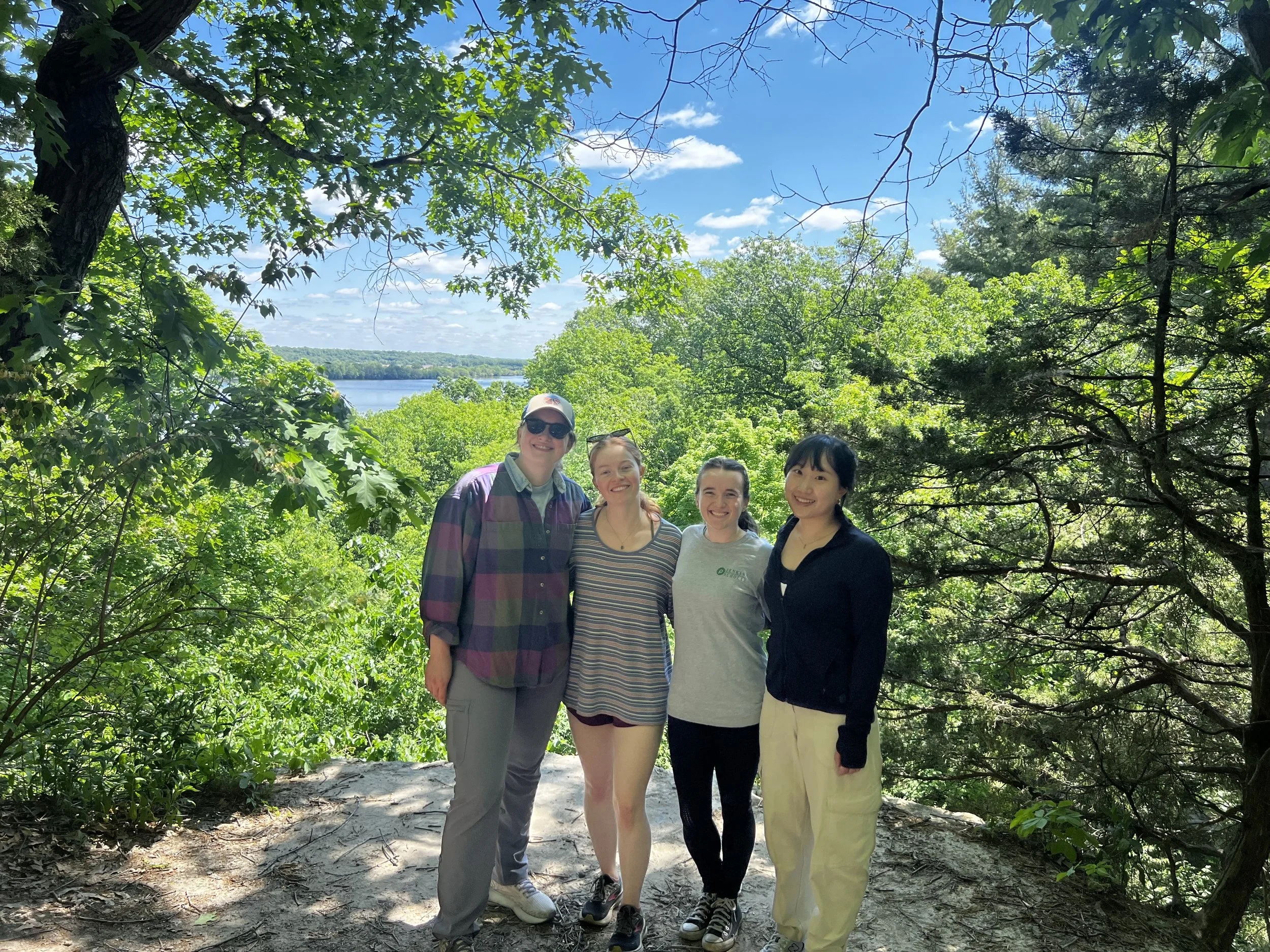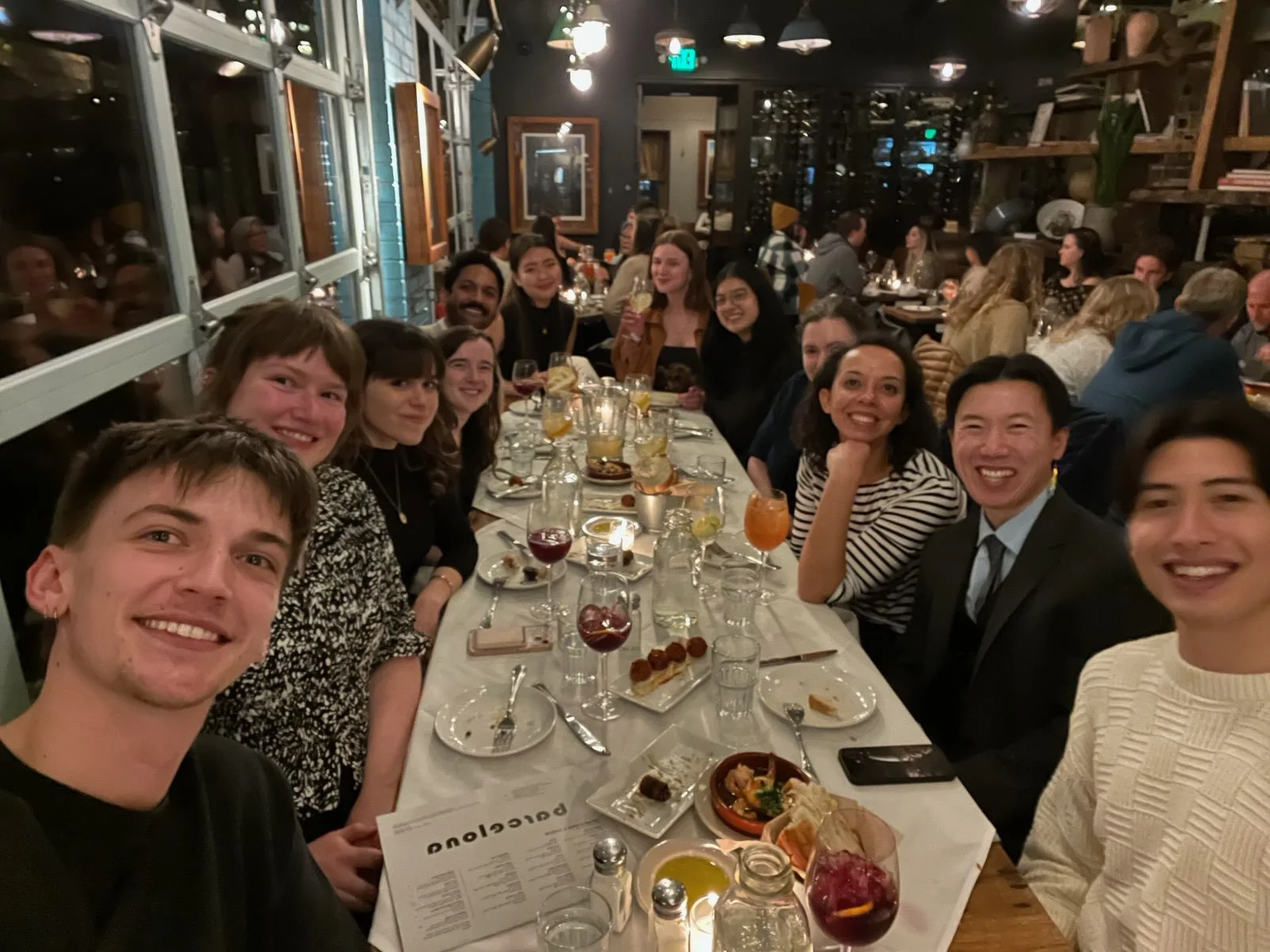New Paper about the Development of Socioeconomic Cognition
We have a new paper in the Annual Review of Developmental Psychology, led by lab member Rachel King and in collaboration with Kristin Shutts and Katherine Kinzler. The paper examines how children think about socioeconomic concepts and develops a theoretical framework integrating domains of socioeconomic cognition.
King, R. A., Emery, L. F., Shutts, K., & Kinzler, K. D. (2025). The development of socioeconomic cognition. Annual Review of Developmental Psychology, 7, 167-194. [Download]
New Paper in Journal of Experimental Psychology: General
We have a new paper in press at JEP:G with Mindy Truong, Hannah Birnbaum, Andrea Dittmann, Nicole Stephens, Sarah Townsend, and Rebecca Carey focusing on how professors’ behavior influences classroom participation. We find that when professors enact more “feminine” behavioral cues, gender gaps in classroom participation are reduced.
Truong, M., Birnbaum, H. J., Dittmann, A. G., Stephens, N. M., Townsend, S. S. M., Emery, L. F., & Carey, R. M. (2025). Professors’ “feminine” behavioral cues in the classroom close gender gaps in participation. Journal of Experimental Psychology: General. Advance online publication. [Download]
New Paper about Self-Expansion Theory
We have a new paper at Social Psychology and Personality Compass with Erin Hughes and Amy Muise about self-expansion theory. In the paper, we trace self-expansion theory to its origins and examine how well the research literature has tested the original ideas of the theory—as well as discussing some of the challenges that have emerged along the way. We suggest some avenues for future research on the topic.
Emery, L. F., Hughes, E. K., & Muise, A. (2025). Self-expansion theory: Origins, current evidence, and future horizons. Social and Personality Psychology Compass, 19(9), e70082. [Download]
New Blog Post for SPSP’s Character and Context
We wrote about our recent Current Directions paper for SPSP’s Character and Context blog:
When you think of a couple merging their lives, you might be thinking of them moving in together, creating a joint bank account, or acquiring new furniture together. The wedding registry—a practice that started almost exactly 100 years ago in a Chicago department store—has become an enduring symbol of newlyweds embarking on a new life with one another.
Read the full post here.
Elijah Green-Longaberger Joins the CEDAR Lab
We are excited to welcome new first-year PhD student Elijah Green-Longaberger to the lab!
Elizabeth Janey Passed Her Trial Research Defense
Elizabeth successfully defended her trial research paper, which focused on her project examining public parks in the city of Chicago as racialized spaces.
The CEDAR Lab Went Hiking
The CEDAR lab went to Starved Rock State Park on our first-ever lab hike!
Graduate students Elizabeth Janey, Maya Ingram (incoming), Mystie Saturday, and Jadyn Park
New Chapter on Social Class in the Handbook of Social Psychology, 6th Edition
In collaboration with Nicole Stephens and Sarah Townsend, we have the first-ever chapter on social class in the newest edition of the Handbook of Social Psychology. Since 1954, the HSP has been the leading reference work in social psychology, and the new edition is the first to be open-access online: www.the-HSP.com.
Stephens, N. M., Emery, L. F., & Townsend, S. S. M. (2025). Social class. In S. T. Fiske, D. T Gilbert, E. J. Finkel, & W. B. Mendes (Eds.), Handbook of social psychology (6th edition). Situational Press. [Download]
Mystie Saturday Received a First Year Scholars Summer Grant
Mystie received a grant through the University of Chicago First Year Scholars Program to support her research during this upcoming summer.
Mystie Saturday Presented at the Kellogg-Booth Student Symposium
Mystie gave a talk about her ongoing research at the annual Kellogg-Booth Symposium, an annual event co-hosted by the Kellogg School of Management at Northwestern University and the Booth School of Business at the University of Chicago. It provides opportunities for PhD students from both institutions to present research on topics including management, organizations, marketing, psychology, or sociology.
We Are Recruiting Couples for a New Study!
We’re recruiting couples for an in-person study that Jadyn Park is running in the lab! If you are in the Chicago area and are interested in participating, please see here for more information.
Mystie Saturday Presented at the Shared Reality Conference
Mystie Saturday gave a data blitz talk at the Shared Reality Conference, showcasing results from her first-year project about the role of storytelling and narratives in developing family identities.
CEDAR Lab at SPSP 2025
Dr. Lydia Emery presented at the SPSP (Society for Personality and Social Psychology) Close Relationships Pre-Conference in a methods panel on recruiting more inclusive research samples, and gave a talk in a symposium on how relationships are especially key to identities and well-being for lower-SES couples. Dr. Erin Hughes received the Graduate Student Paper Award for our 2025 JPSP paper on how avoidantly attached people believe they are losing themselves in their relationships — despite no external evidence suggesting that they are (see earlier news and a link to the paper). Congrats, Erin!
In addition to presenting, the CEDAR lab had a great joint lab dinner with Princeton University’s ARC lab!
New Paper about Merging in Close Relationships
We have a new paper in press at Current Directions in Psychological Science with Emma McGorray, Erin Hughes, and Abdo Elnakouri on the theme of merging in close relationships. In the paper, we review the literatures on merged selves, goals, processing, and reality; aim to put them into conversation; and generate ideas for future research.
Emery, L. F., McGorray, E. L., Hughes, E. K., & Elnakouri, A. (2025). Merging in close relationships. Current Directions in Psychological Science, 34(4), 253-260. [Download]
New Paper about Contextual Approaches to Social Class
We have a paper in press at the Journal of Social Issues with Nicole Stephens and Sarah Townsend about the value of taking a contextual approach to understanding social class. We describe what it means to take this kind of approach, and how it might yield new insights on the psychology of social class.
Stephens, N. M., Emery, L. F., & Townsend, S. S. M. (in press). Taking a social-class-in-context perspective on the psychology of social class. Journal of Social Issues.
New Paper about Attachment and Couple Identity Clarity
We have a new paper in press at EJSP with Erica Slotter, Alexis Audigier, and Wendi Gardner about attachment avoidance and couple identity clarity. People who are high on attachment avoidance struggle to maintain a clear sense of who they and their partner are as a couple, in part because they are less close with their partners and because their partners do not accurately know them.
Slotter, E. B., Emery, L. F., Audigier, A., & Gardner, W. L. (2024). Making sense of “us”: Mechanisms linking attachment avoidance and couple identity clarity. European Journal of Social Psychology. Advance online publication.
Mystie Saturday Joins UChicago First-Year Scholars Program
First-year PhD student Mystie Saturday has joined the 2024-2025 cohort of First Year Scholars in the Social Sciences Division. Congrats, Mystie!
New Paper about Attachment and Loss of Self
We have a new paper in press at JPSP with Erin Hughes, Emma McGorray, Wendi Gardner, and Eli Finkel. We find that people high on attachment avoidance perceive change due to their close relationships as losing parts of themselves, which contributes to lower commitment to their relationship. Furthermore, we find a disparity in perceptions, such that external metrics (including their own behavior and third-party coders) do not detect loss of self among avoidant people.
Hughes, E. K., Emery, L. F., McGorray, E. L., Gardner, W. L., & Finkel, E. J. (in press). The delusion of the disappearing self? Attachment avoidance and the experience of externally invisible self-loss in romantic relationships. Journal of Personality and Social Psychology. [Download]



